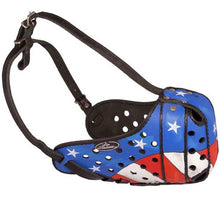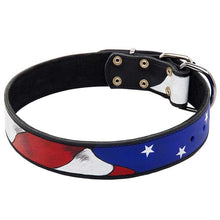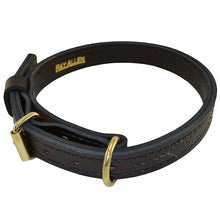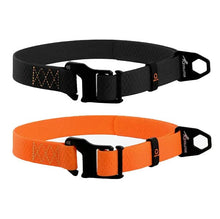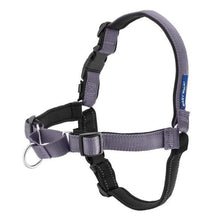5 Things That Can Create A Dangerous Dog

German shepherds are naturally protective and very smart. This combination makes them great pets and loyal companions. But it also places a certain level of responsibility on the people who own these fantastic dogs.
It is important for German shepherd owners to socialize and train their dogs so they grow up to be well-behaved, non-reactive, safe around people, and can comfortably go anyplace you want to take them.
This is actually true for all dogs but even more so with powerful breeds that will take it upon themselves to make decisions and do behaviors instinctive to their breed. Some traits of German shepherds include being protective, guarding, being very observant, having a high prey drive, dominating, herding, solving problems, all while being very clever.

Because German shepherds are so bonded to their family, intelligent, and very active, they can develop bad habits or even develop behavior problems when they don’t have the right training and guidance.
Luckily, these things can all be prevented so that you can raise a dog that is a pleasure to own and that is free from the type of behavior problems that land many unfortunate dogs in shelters through no fault of their own.
No responsible owner wants a dog that is out of control or causes problems. Everyone wants a dog that is safe and fun to be around. Some of the things that German shepherd owners will want to avoid because they can create a dangerous dog include:
1. Unsocialized or Undersocialized Dogs
Socializing German shepherd puppies from a young age is very important. Socialization exposes them to many people, places, situations, other animals, sounds, smells, and places. This socialization sets them up for success in life.
Socialization should start when you bring your puppy home. Puppies as young as 12-16 weeks learn how to pick up cues from their owners on how to react and behave with strangers and in new situations. It’s up to you to calmly lead and guide them through new experiences.

These exposures help your dog grow up to be confident and well-behaved rather than fearful and aggressive. Without socialization, dogs can become fearful, anxious, and reactive, which can create serious problems and make them difficult to own.
Happily, since German shepherds are naturally curious and love to please their owners, socializing them takes commitment but isn’t hard. It is crucial for their development and will help mold them into the well-balanced, happy dog, that everyone longs to own.
2. Untrained Dogs
Like socialization, training your German shepherd is super important. Since they are a powerful working breed, when they are untrained, they will keep themselves busy and can get destructive.
The last thing you need is a dog that jumps or lunges at people, chews up the house, destroys the yard, is a terror to control on their leash, and takes over your life. Dogs like this can quickly become a liability and there is no reason for it to happen.

One of the best things about owning a German shepherd is that they live to please their owners and are super loyal. These qualities make them a joy to train. Since they love to work and are very intelligent, the only thing holding them back is the investment of the time you take to show them how to be a great member of your house and society.
At a minimum, all Germans shepherds should learn what is expected of them indoors, basic obedience, recall, impulse control, taught to accept handling of their body parts, how to greet people, prevent resource guarding, and how to behave in places (such as your veterinarian’s office). But truly, they are fun to train and the sky’s the limit on what you can teach them.
3. Fearful and Stressed Dogs
Some of the major reasons for socialization and training is to raise a confident dog that is free of fear and anxiety. But some situations can trigger reactions that are hard to avoid. In these cases, it’s up to you to step in and protect your pet.
Some instances that can cause stress and fear include:
• Being exposed to too many people at once, such as a party
• People forcing themselves on your dog, including children
• Uncontrolled dog (or other animals) interactions, dog parks
• Forcing introductions with a person your dog is uncomfortable with
• Loud sudden noises, such as fireworks, gunfire, thunder, etc
• Being separated from you
• Illness, injury, pain, or other health problem
• Moving
• Death in the family or death of another pet
• Stress, injury, or illness of the owner
• Aging, memory loss
• Loss of vision or hearing

If your dog is stressed or anxious, it’s up to you to advocate for and protect them. Knowing why they are stressed or anxious is very helpful in getting them through it. Thankfully, many stressors are temporary. The ones that aren’t will take more work and it may even help to talk to your vet if situations get hard to manage on your own.
4. Isolating a Dog
No dog should live in isolation, ever. But we’re talking about German shepherds here so we’ll stick with them. German shepherds are very loyal companion animals that are herding dogs. Their entire purpose for being is to watch over their family and be with them. They do not do well alone. There is nothing more heartbreaking than a German shepherd that is left alone or lives outside by themselves all the time.

Dogs that are isolated have no socialization, or training, and some are even in bad health. All these can add up to a dog that is fearful, aggressive, anxious, and scared. If you want a German shepherd to put it in your yard like an ornament, just don’t. Go buy a statue instead. If you want a best friend that wants nothing more than to be by your side, then a German shepherd is perfect.
5. Dog with no Safe Space
German shepherds love to be an active part of the family but sometimes they just need their space. They can be aloof or even leery of certain people or situations and during those times, it’s best to give them some space.
To prevent your dog from feeling stressed out or unsafe, let’s say when there is a bunch of chaos, new people in the house, strange kids running through your house on a holiday, or during home repairs, it can help to provide them with a place of escape.

To help your dog feel safe and protected (as well as avoid any defensive behavior) be sure they have a place they can go that is away from the commotion. Their safe space should be comfortable and familiar. It could be a bedroom, their crate, or any other area they are used to hanging out in.
We hope you found these tips helpful. It’s up to us to advocate and share how great German Shepherds are. And, that includes training and teaching them how to be good dogs. As always, please feel free to share with your friends.
You may also like: Just Exactly How Smart Is A German Shepherd?




